Dear WesleyNexus Colleagues,
Over the recent months, you have heard it said many times and in many ways, “these are uncertain times in which we are living.” Uncertainty makes you uncomfortable. Uncertainty throws some of us into a panic, and at the other extreme, a debilitating depression. Uncertainty opens up the naivete in us, the vulnerability, the muddle-headiness that makes us susceptible to false claims and scam artists. And those of us in the Christian church are not immune. In fact, those within the Christian community (broadly speaking) pretty much reflect the attitudes and mores of the general population. The attorney general in Idaho drives a pick-up truck with both a Bible and hand-gun side-by-side and cleanly visible as a testament to her faith. Others of us want to question that kind of testimony. But in contrast, what is OUR witness? We live in a country plagued by this pandemic. We live in a country deeply divided when more than 70 million people, whose candidate for the presidency lost the election, will not accept the voice of the majority of voters. The various voting constituencies appear hopelessly split. The same can be said for those identified within the several assemblies of Christians. The distinctive “marks of the Christian” have become all but invisible.
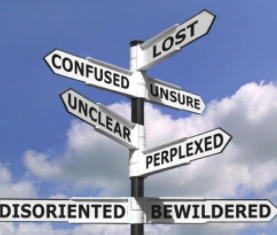
Perhaps the one thing that most commonly characterizes those in the Christian church is the search for certainty. In many ways, this has characterized the “religious mindset” from ancient times. A study of the origins of human religion reveals that the birth of self-consciousness was simultaneous with the birth of religion. Or, in other words, religion has been with us from the beginning of self-consciousness. The myths recorded in the Genesis stories are testament to this. It was in the trauma of awaking to an awareness of self-hood in the midst of a vast and frequently inhospitable world that human beings for the first time came to postulate the existence of a power greater than ourselves to whom we could appeal for help. This power had to be like us, but with all our limitations removed. We eventually named this power “God.” That definition is still apparent in the words we use to describe the theistic God we continue to worship.
When analyzed honestly, that deity is little more than a human being freed from the limits of human life. Human beings are “mortal” and “finite.” God transcends that limit and is therefore called “immortal” and “infinite.” Human beings are limited in power. God is not limited and is therefore called “omnipotent.” Human beings are bound inside time and space. God is not so bound and so we call God “timeless” and “omnipresent.” Human beings are limited in knowledge, but we presume that God knows all things and so we call God “omniscient.” We could go on and on — but the pattern is clear. We human beings created the theistic definition of God as a way to define our yearning for certainty, so God is THE answer to our prayers. It was not the other way around.
We never stopped, however, to recognize that the idea of God as a being, outside the limits of time and space and equipped with the supernatural power to come to us in times of need, was not a revealed truth about the nature of God, but a human creation, a human construct. Theism, as a human idea, can, therefore, die without God dying. Our definition of God and the reality we are trying to define are never the same. The death of theism seems to me to be what we are experiencing today. And the reality of uncertainty is a clarion call for us to re-examine our theology. It is a clarion call for us to think differently about ourselves, our values, and the world we live in.
So, how can we think “differently” about our religion, our tradition, and how can we accept “uncertainty” in religion if we do not face this truth? The fact is we cannot. Religion is always employed in the quest for power and it will always seek to impose itself upon the world. Why? Because it is the nature of human beings to build a mighty fortress behind which we can hide our rampant insecurity. If anyone is allowed to question official truth, then its power to provide security disappears. That is why “religious talk” so often devolves into irrationality and seeks supernatural responses to our questions.
When God is defined as a supernatural power, who is both ready and willing to come to our aid, then without realizing it, we have also defined human life in a negative way. To be human is thus to be inadequate. We are “fallen” creatures who must seek the favor of a theistic God. To illustrate this reality look at the image of God and the resulting definition of human life that dominates (especially) Western religious systems. In the language of our religious systems, we portray ourselves either as children relating to a heavenly father or as convicted felons standing before a “hanging judge.” We are supplicants eager to please the authoritarian deity. That is why so often in our liturgical language we find ourselves saying: “Have mercy, have mercy!” Can anyone not understand how distorting that stance can be to our humanity? Is it possible for us to escape this self-definition without abandoning the traditional and popular concept of the external, supernatural God who is our parent and our judge? I do not think so. That is why a religious reformation is required for the survival of Christianity that will enable us to “think differently” and to faithfully “accept uncertainty.” If we are to find a way to escape the negativity that traditional religion pours upon the dignity of human life, we will inevitably have to move away from the idea of God as a supernatural, external being. The deeper question is: “Can we move away from the theistic definition of God without moving away from God?” I believe we can, but traditional religious leaders will not make that distinction and because they will not, they will almost inevitably distort alternative ways to live faithfully but realistically in a world of unending change and foundational uncertainty.
This is not an easy task. The sum of these traditional definitions of God produces a picture of human life that is lacking in both talent and in ultimate worth. God is the heavenly extension of all of the things about which we feel inadequate. So, against this common definition of God, we human beings have been taught to judge ourselves to be inadequate creatures. This insufficiency of human aspiration forms one of the major motifs of Christian worship. In our liturgies we human beings judge ourselves constantly as those lacking in worth. We sing of God’s “amazing grace,” but we soon learn that what makes God’s grace so amazing is that it saves “a wretch like me.” We sing to God the flattering words “How great thou art,” only to learn that God’s greatness lies in the divine ability to stoop to save a sinner like me. We refer to God in our hymns as the potter and to ourselves as the passive clay begging God to “mold me and make me.” We tell God in worship that “there is no health in us,” that “we can do nothing good” without divine help, that we are not even worthy to “gather up the crumbs” from the divine table. We portray this external deity as an inescapable judge from whose all-seeing gaze we can never hide. The plea for mercy that emanates from the lips of worshipers might be appropriate for a child standing before an abusive parent, or as one standing before a sentencing judge. But is this ever appropriate for a human being standing before a God whose name is Love?
This theology dumps enormous amounts of guilt, unbearable guilt, onto us when we are worshipers. That is why we are taught to beat our breasts and to plead for mercy. We are – this theology proclaims — responsible for the death of Jesus. Our sins resulted in his crucifixion. We are all “Christ killers.” Guilt has become the coin of the realm in church life. It is “the gift that keeps on giving!” Has the imposition of guilt ever produced life and wholeness in anyone? Is guilt not rather one of the most distorting emotions with which human beings have to deal? Have you ever known anyone to be made whole by being told what a wretched and miserable sinner he or she is? How does this square with the promise attributed to Jesus by the Fourth Gospel that his purpose was to bring abundant life to all?
The final thing that is wrong with this theology is that it is simply not true. It is based on bad anthropology and a bad understanding of what it means to be human. One cannot build good theology on bad anthropology. Perhaps in some subsequent discussion we might begin the process of dismantling this debilitating theology by looking at our human origins through a different lens. We are not “fallen” creatures who were born in sin. “Original sin” is a concept that begs for redefinition. With it goes the portrait of Jesus as the rescuer of the fallen and the image of God as the external and displeased deity. It will be good riddance! To go here, however, will require that we “think differently” and “accept the truth” about the world of uncertainty in which we live. Not to go there is to face the death of the Christian faith.
Several days ago, I was privileged to participate in a ZOOM session sponsored by the Washington Theological Consortium (WTC) on the subject of peacemaking. Principal speaker was Dr. Sathianathan Clarke, who occupies the Bishop Sundo Kim Chair of World Christianity at Wesley Theological Seminary (WTS) here in DC. Dr. Sathi reflected on Mahatma Gandhi’s interfaith peacemaking, including his influences on Dr. King, Dr Abraham Heschel, and others. After outlining various foundational concepts that form the basis for a “beloved community,” Dr. Sathi referred to Gandhi’s core concept: “truth is God.” Not the other way around. Think about that for a moment. Put aside for a moment your Western mindset. This might become a mandate for those of us dwelling in a culture of lies.
The lecture by Dr. Sarhi Clarke is available on the website of the Washington Theological Consortium. Go To https://washtheocon.org
Uncertainty — word meanings
Uncertainty (German: unsicherheit) – doubt, doubtful, not decided, not fixed, vague
Indeterminate (German: unbestimmtheit) – indefinite, unsettled, vague.
Unpredictable – unsaid beforehand, unforeseen, unforetold
Unexpected – unforeseen, unanticipated
Aleatoric – dependent on chance, luck, of uncertain outcome, indeterminate
Stochastic – probability
Random – by chance, unplanned, accidental, haphazard
Chance – possibility, likelihood, fortuitous, offhand, unexpected
Chaotic – in great confusion, disorder, disorganization, anarchy
Inexactness (German: ungenauigheit) – inaccurate
Unscharfe – unsharpness, blurriness
As always, our thanks go out to our generous contributors. We will continue to share this newsletter in the coming months and encourage you to share comments, articles and insights that will help us all weather these difficult times.
Rick, Jennifer, Maynard, and the rest of the WesleyNexus team.
**********************************************

Townes Lecture in Science and Religion
November 15th at 3:00 p.m. EST
Lecturer: Dr. Jennifer Wiseman, a Senior Astrophysicist at the Goddard Space Flight Center and Program Director of the Dialog on Science, Ethics and Religion at AAAS.
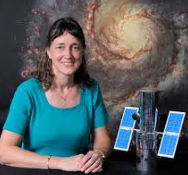
InterFASE 2020 Charles H. Townes Lecture in Science and Religion was postponed due to the pandemic. Instead, join a Zoom Webinar on Sunday, November 15th at 3:00 p.m. EST. The Lectureship was established in 2002 to honor Dr. Charles H. Townes, Nobel laureate in physics, a pioneer in the faith and science dialog and our inaugural lecturer. Our 2020 lecturer is Dr. Jennifer Wiseman, a Senior Astrophysicist at the Goddard Space Flight Center and Program Director of the Dialog on Science, Ethics and Religion at AAAS. We thought that you might like to attend our webinar since it is usually an in-person event held in the Boston area. No travel needed! The announcement is attached.
The event is free but reservations are required. RSVP to smithmoran@earthlink.net, specifying whether you wish to be among those asking questions, or simply part of the audience.
**********************************************

Please join IRAS for the October session of our new monthly webinar series, Science, Religion, and Society.
November 17th, 2020
We are the Dinosaur, We are the Meteor:
Climate, Biodiversity, and the Human
Future
The program will begin at 4:00 PM CDT, 5:00 EDT, 2:00 PM PDT, 10:00 PM BST
In Earth’s last major extinction, a meteor caused an environmental cataclysm that ended the reign of dinosaurs on the earth. We are now experiencing — or are on the brink of — the sixth great extinction. In this cataclysm, we human beings ARE the meteor, and because of the interconnected nature of the biosphere, we could well wind up being the dinosaur as well, the victim of our own excesses. How do we act as agents of justice in restoring and protecting the biosphere that sustains us? Drawing on virtue ethics and engaging the insights of Pope Francis’ 2015 encyclical Laudato si’, I will describe the qualities of character that will help us engage the crisis of biodiversity well, specifically humility, solidarity, courage, and IMpatience. Another resource for the necessary conversion of mind and heart is to cultivate cataphatic spirituality, a vision of the world that sees glimmers of the Divine in everything that is. This spirituality is a resource for action for justice, enlivening, sustaining, and yielding delight in the urgent work before us. I include some small first steps toward being people of imagination, insight, and effective action for ecological justice in the face of our biodiversity crisis.
Dr. Lisa Fullam joined the faculty of the Jesuit School of Theology at Santa Clara University in August 2003. As Professor of Moral Theology, she teaches courses such as Fundamental Moral Theology, Sexual Ethics, Luther and Ignatius: Conversations Ethics, and Spirituality of Pastoral Ministry, and Issues in Virtue Ethics. She received her baccalaureate and D.V.M. degrees from Cornell University and earned her M.T.S. and Th.D. at the Harvard Divinity School. Dr. Fullam’s research interests include virtue ethics, Thomas Aquinas, biomedical ethics, Ignatian spirituality, and the relationship of spirituality and ethics. She is also accredited as a faculty member at the Graduate Theological Union in Berkeley. Among her publications is the monograph Curiosity and Skepticism: Virtues for Genomics.
The program will begin at 4:00 PM CDT, 5:00 EDT, 2:00 PM PDT, 10:00 PM BST
The IRAS webinar is FREE but registration is required:
https://us02web.zoom.us/webinar/register/WN_9_eYMDQdTN2OOCgLgt_vdA
**********************************************
Previous IRAS On-line Seminars www.iras.org :
October 21, 2020: It’s the Economy, Friends: Putting Sacred Cows Out to Pasture with Brian Czech
September 17, 2020: Navigating Crises and Bridging Cultural Divides with Citizen Science, with Grace Wolf-Chase
August 18, 2020: The Unifying Potential of a God that is Real in the Scientific Universe, with Nancy Ellen Abrams
July 16, 2020: Theology & Covid-19: Etiological and teleological models at the nexus with science, with Dr. Arvin Gouw
June 30, 2020: Will Modern Civilization be the Death of Us? (Part 1 — with Dr. William Rees)
June 29, 2020: Will Modern Civilization be the Death of Us? Envisioning Tomorrow’s Earth. with Ruben Nelson.
**********************************************
The Third Annual Omega Conference from the Center for Christogenesis at Villanova University – December 4-8, 2020 – 100% On-Line
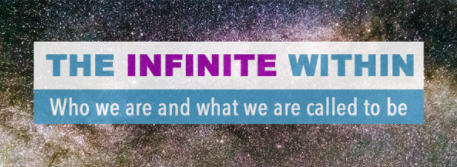
The Center for Christogenesis Third Conference
The Infinite Within: Who We Are and What We Are Called to Be

Join us online for our third annual conference, as we seek to meet the infinite within and explore these depths together toward the future of our world and our God.
Register Here
Also from the Center for Christogenesis:

Zoom Conversation with Ilia Delio: Why do we Fear? Exploring Human Potentiality in an Age of Anxiety. Friday, November 20th, 4:00-5:30 EST
We are living in tumultuous times where fear prevails on many sides. The COVID pandemic and imminent presidential election have created a sustained level of panic and anxiety. But why do we fear? This is a question Jesus posed to his disciples. Here we will examine what it means to be a human person in relationship with God, the capacity for the infinite, the courage to transcend where we are, and the creative imagination evoked by the symbol of the risen Christ.
Join us online on November 20th for an inspiring conversation with Ilia, where we will learn about the courage to transcend where we are. Register here.
**********************************************
Meditation from the Wilderness by Dr John Colatch
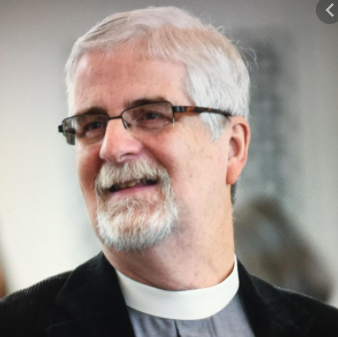
Letting Go While Holding On
John Colatch, D.Min, was a college and university chaplain and adjunct professor for 31 years. Now retired, he is a part-time hospital chaplain and Penn State Extension Master Gardener. He posts regular reflections on his blog site, Musings of an Aging Progressive, Thoughts about theology, faith, the environment and life together.
This article can be found here: https://jcolatch.wordpress.com/2020/10/21/letting-go-while-holding-on/
**********************************************
The Great Story (A Reality Based Religion led by Michael Dowd)
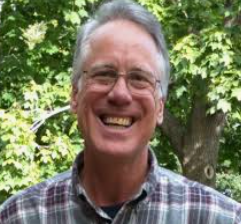
Dowd leads a new religion grounded in science and reality that worships the universe and life, and that acknowledges the special responsibility our species has because of its rare and possibly unique ability to understand how the universe and life were created, and how our behaviors are placing us and other species in peril.
Find The Great Story (A Reality Based Religion led by Michael Dowd) here.
**********************************************
2020 CarnegieScience, the Newsletter of the Carnegie Institute for Science

Access the complete issue with articles including:
The President’s Letter;
“Superdiamond” Carbon-Boron Cages Finally Synthesized;
Gut Bacteria and Their Effect on Us;
How the Universe Got its Structure;
How Corals Limit Populations of Their Symbiotic Algae;
New Technique Images Beneath an Active Aleutian Volcano…and much more!
https://carnegiescience.edu/sites/default/files/flipbook/fall2020/?page=1
**********************************************
Mind, Value, and Cosmos: On the Relational Nature of Ultimacy – Andrew M. Davis
“Mind, Value, and Cosmos: On the Relational Nature of Ultimacy” is an investigation into the nature of ultimacy and explanation, particularly as it relates to the status of, and relationship among Mind, Value, and the Cosmos. It draws its stimulus from longstanding “axianoetic” convictions as to the ultimate status of Mind and Value in the western tradition of philosophical theology, and chiefly from the influential modern proposals of A.N. Whitehead, Keith Ward, and John Leslie. What emerges is a relational theory of ultimacy wherein Mind and Value, Possibility and Actuality, God and the World are revealed as “ultimate” only in virtue of their relationality. The ultimacy of relationality—what Whitehead calls “mutual immanence”—uniquely illuminates enduring mysteries surrounding: any and all existence, necessary divine existence, the nature of the possible, and the world as actual. As such, it casts fresh light upon the whence and why of God, the World, and their ultimate presuppositions.
Andrew Davis is a philosopher, theologian, and scholar of world religions. A native of northern California, he was born and raised among the towering redwoods of Occidental and the meandering woodlands of Santa Rosa’s Bennett Valley. He hold’s a B.A. in Philosophy/Theology, an M.A. in Interreligious Studies and a Ph.D. in Religion with emphases in Process Philosophy, Philosophy of Religion, Christian Theology and Comparative Religion.
**********************************************
Also from The Institute for Religion and Science at Chestnut Hill College

Catching Fire!
Spiritual Transformation and Evolutionary Process:
Teilhard’s Vision of Becoming
Anita Wood, M.Ed.
January 20, 27, February 3, 10, 2021
6:30 pm to 8:30 EST
“Catching Fire!” is a group process that blends contemplative prayer, reflection, and dialogue for the purpose of spiritual growth. It is based on Teilhard’s assumption that, when people gather together for shared purpose, they have greater potential to increase in consciousness and co-evolve society.
Participants must commit to all four two-hour sessions. The fee to cover all four two-hour sessions is $50. Space is limited and registration is required.
To register: https://us02web.zoom.us/meeting/register/tZYsf-CgpzgrHdwMuQSVquAzgVEz1WPc15Bc
After registering, you will receive a confirmation email containing information about the program and how to log in.
To submit payment for joining the program Catching Fire! or to make a tax-exempt donation to the Institute for Religion and Science, send a check made out to Institute for Religion to:
Kathleen Duffy, SSJ, PhD, Director
Institute for Religion and Science
Chestnut Hill College
9601 Germantown Avenue
Philadelphia, PA 19118
If you have questions, email kduffy@chc.edu
